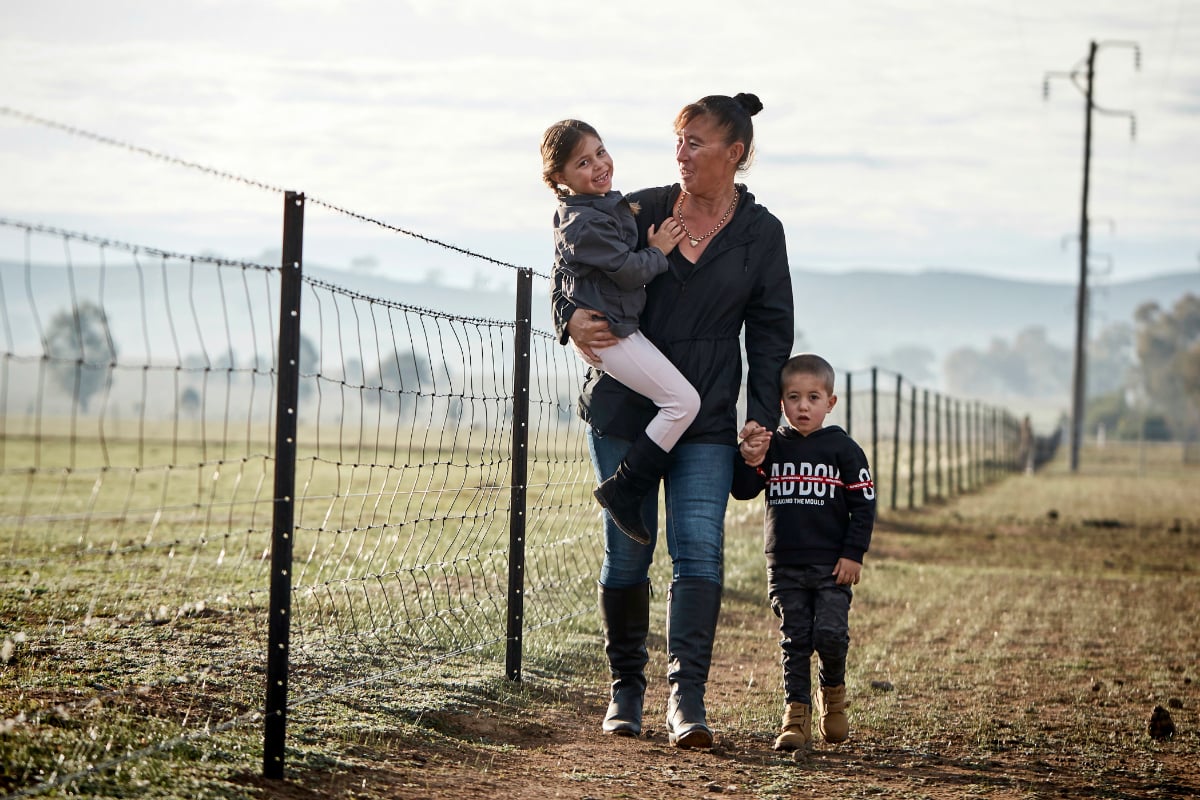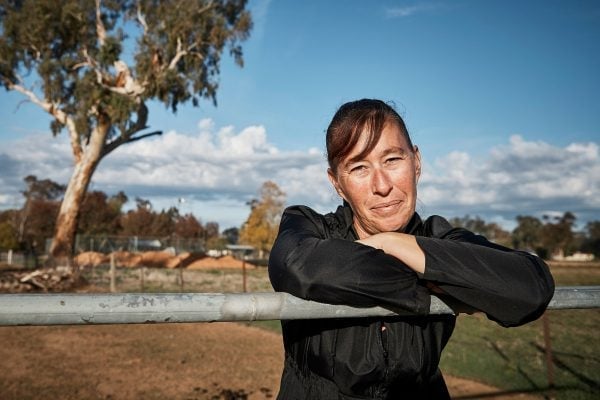
There are roughly 200 people living in the town of Nangus in the NSW Riverina region. There’s a general store that doubles as the Post Office and bottle shop, a service station, a little Anglican church and a primary school with 24 kids.
“It’s just peaceful, it’s tranquil,” says local resident Peta Zaric. “I mean peak hour traffic in Nangus is five cars at 3:00 in the afternoon when you go to pick up the kids, or when the cattle are out on the road. But that’s it.”
But as idyllic as her little community is, Peta, a former Sydney resident, has had a hard lesson in the limitations of rural living.
Her five-year-old son, Cody, has been sick since birth. He lives with two genetic conditions. The first, Dent’s Disease Type 1, is a rare kidney disorder that can result in damaging levels of calcium in the urine, as the kidneys are unable to filter properly. This means Cody could one day require a transplant.
The second is a rare mutation found on his RANBP2 gene that causes encephalitis, or brain infection; he’s believed to be one of just 250 such cases in the world. Any sign of him being unwell means a trip to the hospital or GP to make sure it’s not an infection that could turn deadly.
With Cody’s regular bouts of bronchitis and pneumonia, it’s an incredibly stressful situation for the family.




Top Comments
I live in regional NSW and we don't have peadiatric specialists here, the next town over (45 minute drive) does have peadateic specialists but we are not "in zone" so we can't utilise their services. Our zoning means a 7 sometimes 8 hour round trip to see specialists or have operations for the kids.
While I agree with the commenters below that not every town can have peadiatric specialists. When you add up the number of people in the towns and rural areas in our area, there would be more than enough to justify perhaps having specialists from Sydney having clinics here on a regular basis. There are some specialists that do run occasional clinics here, but because they are few and far between the waiting lists are horrendus and often they'll book you into the city if they need to be seen earlier.
There is definitly room for improvement in this area. Those of us who don't live in major cities pay our taxes and rates too. I'm sure there is more that could be done. The problem though is that would take investment in health care from the Government, and we all know what a challenege that is.
I sometimes don't understand country people. I thought rural people would be used to travelling further distances. I was really surprised when I moved from Melbourne to regional Victoria how weird they were about distances. An hour drive to a specialist when you live in a tiny town sounds okay to me. You can live in Melbourne and it might (often) takes an hour to get anywhere, so even city people spend that much travel time (Melbourne travel times obviously due to congestion rather than distance, but an hour driving is still an hour driving, regardless of distance)
A one-hour trip for an office appointment as a one-off isn't a big deal. However, think about what it's like if they need to be seen more frequently than that. Take cancer - a bog-standard, common problem that affects thousands of Australians per year. A cancer diagnosis could mean they need to attend a hospital multiple times per week for treatment (which makes them feel bloody awful), plus specialist appointments every couple of weeks on top of that.
It's also unfair to compare a commute of several hundred kilometres to that of being stuck in Melbourne gridlock where you're only covering 20km or so in total.